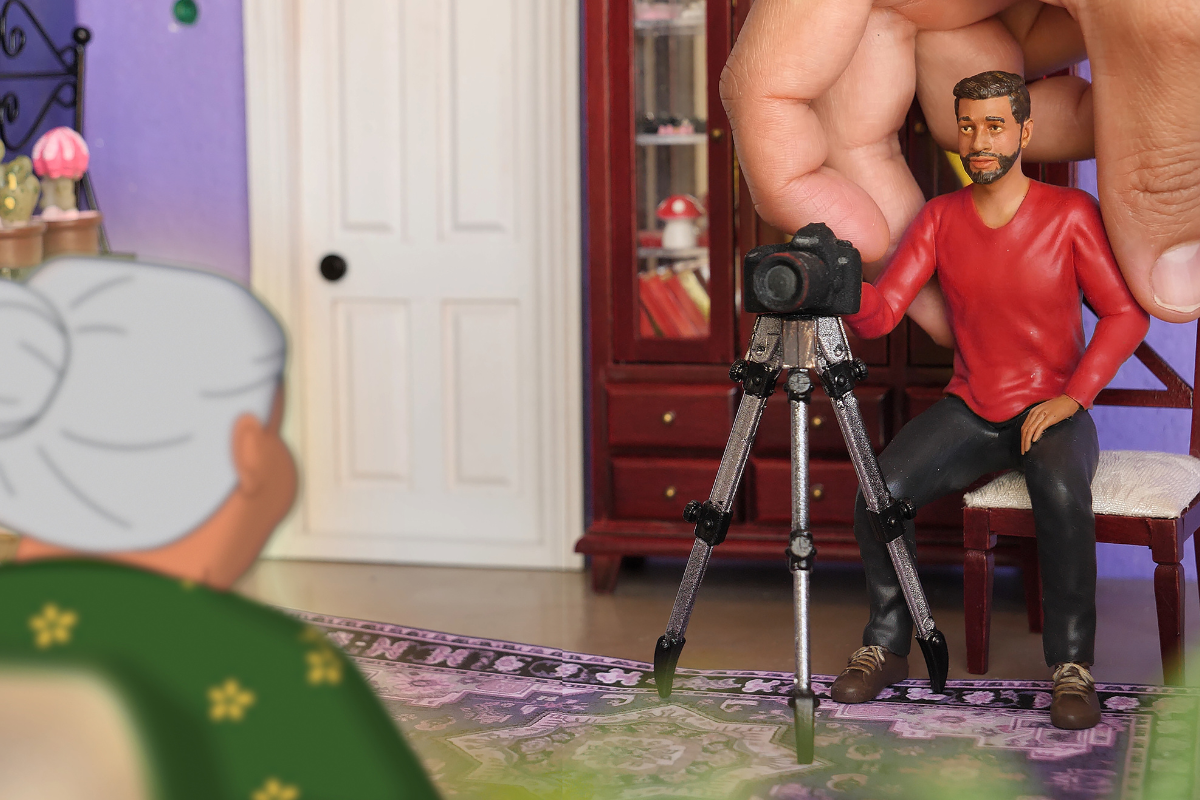Alt Script: What the Heck Does Independent Filmmaking Mean?
I don’t think there is any term in the film/TV world more potentially confusing for a screenwriter than the word independent. What the heck does it mean when someone presses…
I don’t think there is any term in the film/TV world more potentially confusing for a screenwriter than the word independent. What the heck does it mean when someone presses a business card into your hand with independent film producer printed on it? I have some personal views on what independent filmmaking means, but they’re not suitable for this article, in fact they’re probably not suitable for publication, period. In this article I want to unpick the industry a bit, to show screenwriters how and why they could consider alternative ways to view the business and their careers.
Historically the term 'independent' has been used to mark the difference between the Hollywood Studios and pictures produced by companies working independently of those studios. However, the truth of the matter is, the term independent pre-dates the studio system and was first used to refer to companies who didn’t want to opt into the cartel formed by Edison’s Motion Picture Patents Company in 1909. Yep, even at the birth of the film industry, there was a strong urge to create the illusion of one central industry. However, regardless of the historical reasons for differentiating between independent and industry, all that matters today, is if you apply the traditional definition, then the vast majority of international film and TV production is technically independent. Basically, this tight and dated definition means that the whole of the BBC (British Broadcasting Corporation) is an independent company, as is all of Bollywood. To anyone working outside of the USA, the traditional definition of what makes a production independent is frankly ridiculous and also worse than useless to anyone trying to look at alternatives to the mainstream industry.
One of the reasons I prefer the term 'alt-cinema' to the term 'independent', is precisely because it avoids the historical, American, studio-centred definition of what it means to be independent. For writers, it’s important to step clear of the original usage, simply because there are a lot of independent production teams, outside of the studio system, who are at least as inaccessible to writers as the studios. All the people who stand between the writer and the audience in the studio system, also exist in a lot of the independent sector as well. (See Alt Script: Why Alt Screenwriting? for discussion of this phenomenon)
What exactly are we talking about when we talk about alt-cinema, if we’re not talking about independent film-making? Well, as far as I am concerned, alt-cinema is any project a writer takes on, where they decide to reduce the number of decision makers between themselves and the audience.
For instance, the most basic alt-cinema approach to screenwriting, would be the simple decision to not look for work via an agent. The basic rule of alt-cinema is, when you decide to take one of the links out of the chain, you have to be prepared to fill that position yourself. A writer who decides to take an agent out of their plan for a particular project/career, is making a decision to become their own agent. Or, in other words, they decide to form direct relationships with commissioning editors and producers in order to create their own opportunities.
Actually, even writers looking for an agent should consider this as an option, because a lot of agents would prefer it if writers built careers and industry connections before coming to them for representation. Many of the agents I’ve spoken to, see themselves as deal negotiators as opposed to work brokers. Yes, they can open doors for a project, but it’s a more efficient use of their time for them to make good deals for you, once you’ve opened the door, rather than expecting them to create a career for you.
There are a lot of good reasons for taking control of pitching, at least for some of your own projects, if not all of them. Not least of which is because the term The Industry is itselfalsohighly misleading. In reality there is no such entity as The Industry. The industry is a heaving, ever changing mess of independent businesses, which loosely interconnect, overlap, and who are often competing with each other for their share of the market.
The idea that there is one single industry, for which agents are the gate keepers, is not really how it works.
There are tens of thousands of production businesses out there. They range in size, from huge corporations like the BBC/HBO/Warner Brothers, right down to the guy down the street who has a DSLR camera and a business card with producer printed on it. That’s the reality of The Industry. I don’t care how well connected your agent is, they only have access to one very small part of the overall industry. An agent is not a gate keeper. An agent is just someone who knows people who may or may not want to take on projects from writers, and the people your agents knows are always just a tiny fraction of what’s out there. In very real terms, relying solely on your agent, is to limit your opportunities to her/his contacts.
The overall advantage of taking a step back and building your own contacts with producers and commissioning editors, is that you when you take back control of that part of your career, it’s you who decides where to target the kind of writing you want to do and it’s you who decides who you want to work with. This one, simple decision takes a writer a lot closer to the process of serving the story, which I talked about in the last article.
If you, as a writer, really want to do a right-out-there, art-house film, there are producers who want to make those kinds of movies. And, those kinds of producers are highly unlikely to be hanging out with most mainstream agents. To do those kinds of projects, you have to either get out there and find the right producer, or in some cases, become that producer yourself.
It’s not just about making art-house flicks, either. The same applies to a lot of what the industry refers to as genre movies. So, for instance, one of the largest producers and distributors in the USA makes nothing but family friendly movies. They are completely independent of the studio system, they’re not based in Los Angeles and they make and sell an awful lot of movies every single year. For a lot of writers they just don���t appear on the radar, which is a real pity if you’re desperate to tell that kind of story and your agent can’t see a market for your concept.
Ultimately, deciding who you want to work with and how you want to work, is one of the core concepts of alt-cinema. It’s also one of the biggest challenges, because what you lose when you decide to be you own agent, is the safety net of only taking meetings with people who your agent has professional knowledge of. The constant risk involved in putting yourself into the world of alt-cinema, is that you’ll waste a lot of time and energy working with idiots or jackals. Trust me, that is a very real and present risk.
Personally, I believe that the single hardest task a screenwriter takes on, once they decide to take some control over their own projects, is deciding who to work with and under what terms. The fundamental advantage of taking more control over your projects is that you get closer to audiences. The single biggest disadvantage is that stepping out of the safety net of the larger corporations, is that you have to make very difficult decisions about what kind of conditions you’re prepared to work under, and for whom you are prepared to work.
In the next article, I’m going to suggest some guidelines on how to tell which “independent” producers are worth working for/with, and which ones to avoid at all cost.
However, just to start you off, here are a couple of questions to think about until then. Finding answers to these questions is the starting point for any alt-cinema project. Basically, before you start out looking for people to work for/with, you need to know what you’re trying to achieve.
What kind of result are you looking to get by getting this film/TV project to audiences:
- Are you looking to make money from the project?
- Are you looking to build your reputation in the industry?
- Are you looking to build a fan base for a particular style of work?
- Do you not really care about any of the above, provided this story is told the way you want to tell it?
- Which of the above are you prepared to sacrifice to get your pet project out there?
In order to work with a producer are you prepared to:
- Accept payment based on a back-end deal (or in other words, only get a payment when the film goes into profit)?
- Work knowing that you’ll probably not receive payment of any kind?
- Fund the production from your own pocket (become an investor)?
- Learn new skills, such as camera work or editing?
In the next article we’ll go deeper into these questions and their implications. But, before we go any deeper, I think it’s important to hammer home the two main points of this article: firstly, there is no such thing as The Industry, instead the industry is just a huge collection of businesses and producers, all looking to achieve different kinds of projects for different sectors of the industry. Secondly, the term independent, isn’t really that useful to a writer. The industry is too fragmented to mean anything at all and independent is a meaningless term, for anyone trying to make decisions about how to get their project to an audience.
What I hope is clear, is there are a lot more choices out there for writers than many of us realise. Choices about how you write, how you produce, who you work with and under what conditions. Alt-cinema is a very real option for every screenwriter, regardless of where they are in their current career, because ultimately alt-cinema is simply about making choices about what’s important to you as a writer and deciding that your fate is in your own hands.
Related Articles:
- 7 Keys to a Great Pitch
- Film Festivals 101: The Essentials of Film Festival Success
- Ask the Expert: 13 Tips to Networking Success
Tools to Help:
Clive Frayne is a writer with over thirty years experience in broadcast media. After a very successful career running professional writing teams in the radio industry he decided to move into screenwriting. Since then he has written and directed two feature films and half a dozen award-winning short films, and authored the book The Process of Screenwriting. These days he splits his work between writing, script editing and teaching screenwriting. He is a passionate advocate of two things, process-driven screenwriting and independent filmmaking. Follow Clive on Twitter @clivefrayne







